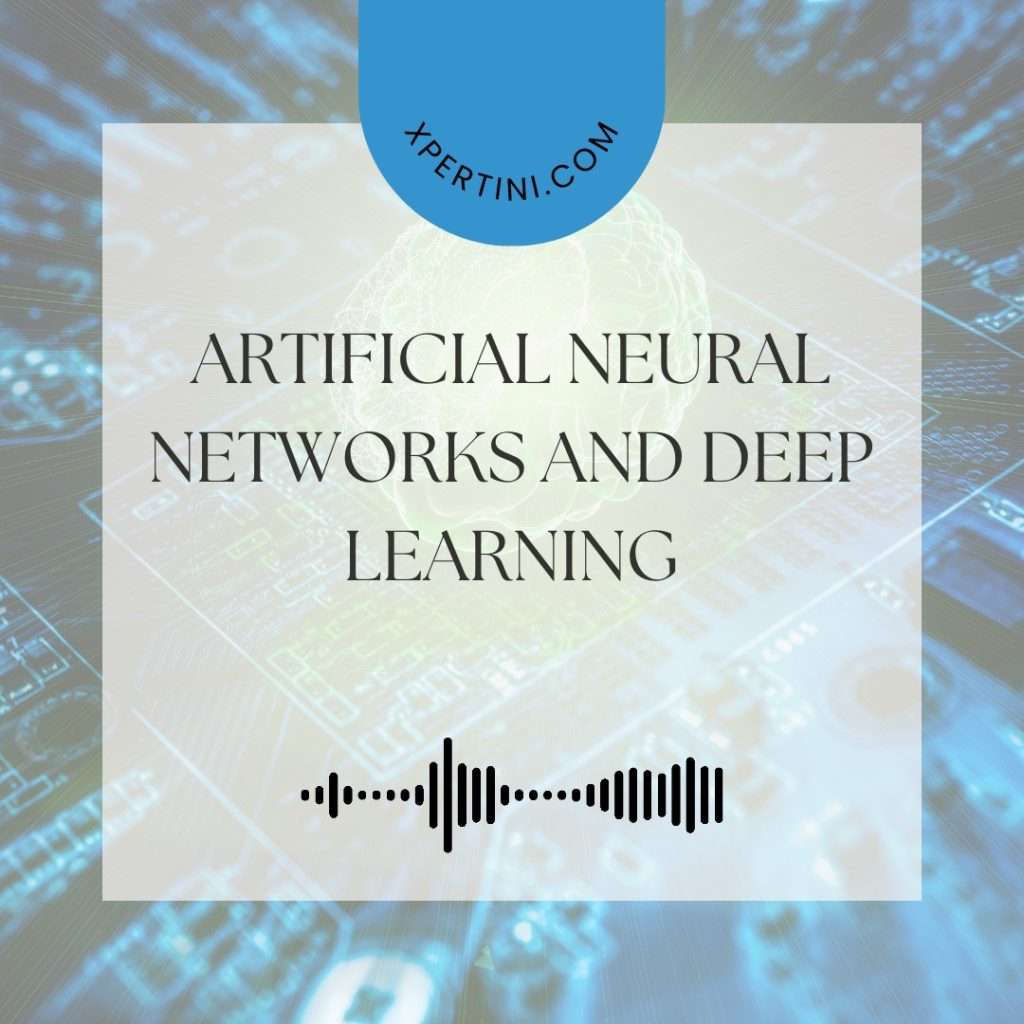Artificial Neural Networks and Deep Learning
Course Summary
Begin your enlightening journey into the of artificial neural networks (ANNs) and deep learning with this meticulously crafted course. Delving into the core principles and cutting-edge applications of neural networks, students will unravel the transformative potential of this burgeoning field in modern technology.
Tracing the evolutionary trajectory from perceptrons to sophisticated deep learning models, learners will grasp the historical and pivotal milestones that have shaped the landscape of deep learning, setting the stage for in-depth exploration.
With a focus on building practical expertise, students will dissect the fundamental architecture of neural networks, mastering of the feedforward and backpropagation algorithms essential for training models across various tasks.
Venturing into advanced territories, participants will uncover the power of convolutional neural networks (CNNs) for image recognition and recurrent neural networks (RNNs) for sequential data processing, equipping themselves with versatile tools for real-world applications.
In a learning environment, students will engage in collaborative projects, honing their problem-solving skills and fostering creativity in applying deep learning techniques to address real-world challenges.
Moreover, ethical considerations and societal implications of deep learning technologies will be critically examined, empowering learners to navigate the ethical dilemmas inherent in deploying artificial neural networks indy society responsibly.
As the course draws to a close, participants will emerge equipped with not only technical proficiency but also a strategic vision for leveraging deep learning in diverse domains, poised to embark on rewarding careers in artificial intelligence and machine learning.
Course Overview
This course provides an in-depth exploration of artificial neural networks (ANNs) and deep learning, focusing on their principles, applications, and significance in contemporary technology. Students will delve into the theoretical foundations and practical implementations of neural networks, gaining valuable insights into cutting-edge advancements in deep learning.
Course Objectives
Understand the fundamentals of artificial neural networks and deep learning.
Learn how to design and train neural networks for various tasks.
Explore advanced topics such as convolutional neural networks (CNNs) and recurrent neural networks (RNNs).
Analyze real-world applications of artificial neural networks across different domains.
Develop the ability to evaluate and optimize neural network architectures.
Explore ethical considerations and challenges associated with deep learning technologies.
Collaborate with peers on projects to reinforce learning and problem-solving skills.
Prepare for further studies or career opportunities in artificial intelligence and machine learning.
Foster critical thinking and creativity in applying deep learning techniques to novel problems.
Course Outcomes
Identify and describe the anatomical structures of plants.
Demonstrate an understanding of plant reproduction and genetics.
Analyze the ecological roles of plants in various ecosystems.
Apply botanical knowledge to identify and classify plant species.
Evaluate the importance of plants in human nutrition and medicine.
Demonstrate proficiency in using botanical tools and techniques.
Design and conduct experiments related to plant physiology.
Assess the impact of environmental factors on plant growth and development.
Collaborate effectively in botanical research projects.
Demonstrate ethical considerations in plant science research and practice.
Course Audience
Students pursuing degrees in biology or related fields.
Professionals seeking to enhance their understanding of plant science.
Individuals interested in gardening, agriculture, or environmental conservation.

